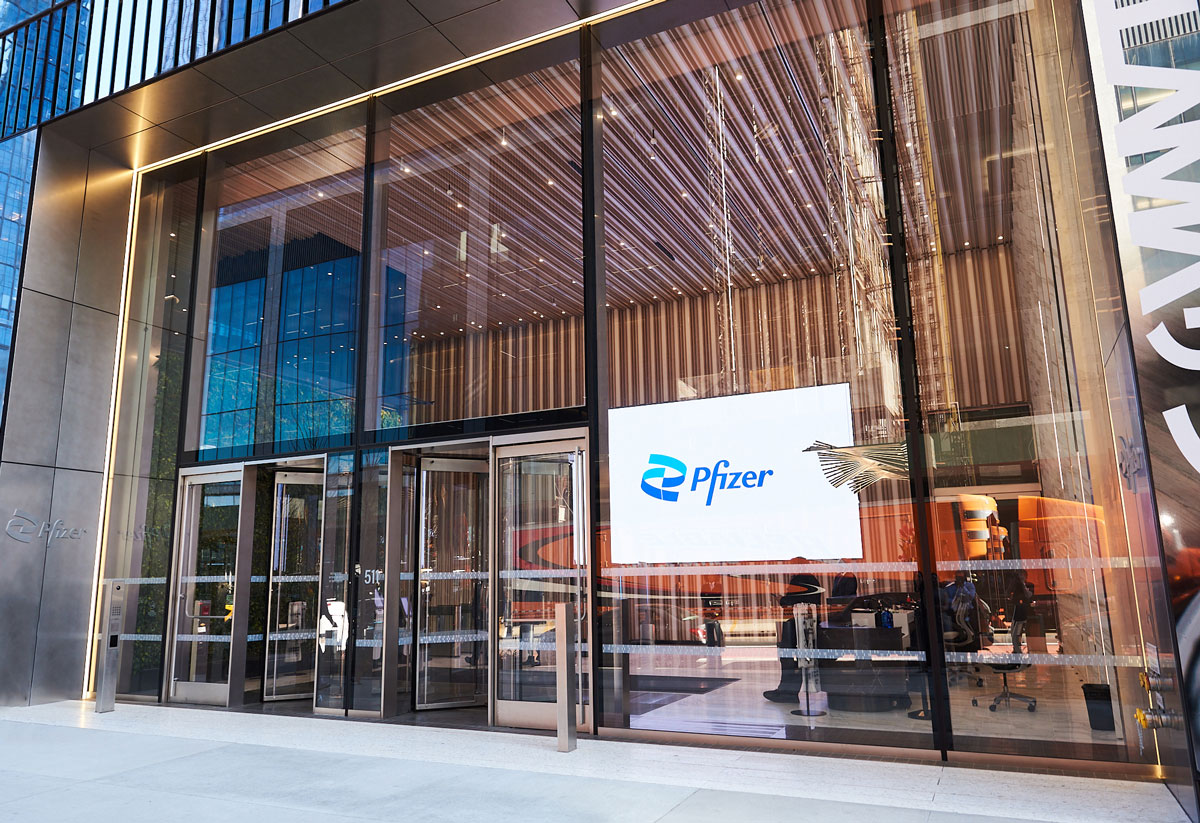Pfizer’s $33 Million Dilemma: Executive Pay Clashes With Performance and Investor Patience
A Proxy Firm’s Rebuke Opens Broader Debate on Accountability in Pharma’s C-Suite
In a year marred by tumbling revenues and a bruised stock price, Pfizer Inc. faces a reckoning—not in its laboratories or boardrooms, but at the ballot box of its shareholders.

Institutional Shareholder Services (ISS), one of the most influential proxy advisory firms in the world, has delivered a pointed verdict ahead of Pfizer’s April 24 annual meeting: vote “no” on the executive pay package, particularly the $33 million total compensation awarded to CEO Albert Bourla. In ISS’s words, the package is “significantly disconnected” from the company’s performance in 2024.

Proxy advisory firms, like Institutional Shareholder Services (ISS), conduct research and analysis on matters put to shareholder votes at company meetings. They provide recommendations to institutional investors, such as pension funds and mutual funds, advising them on how to vote their shares on corporate governance issues and other proposals.
That recommendation has sent tremors through the pharmaceutical and investment communities, stirring a wave of scrutiny around corporate governance, pay transparency, and the fragile alignment between executive reward and shareholder return. As one investment governance analyst put it, “This isn’t just about one company—it’s about the accountability architecture of an entire sector.”
The Performance-Pay Gap: Numbers That Don’t Add Up
At the heart of ISS’s recommendation lies a dissonance that has become increasingly familiar to institutional investors: declining metrics coupled with outsized executive bonuses.
In 2024, Pfizer’s stock price dropped 28%, reflecting waning market confidence. At the same time, revenues fell 42% year-over-year, driven primarily by the predictable collapse in COVID-19 product demand. Despite this, the executive bonus pool swelled to 152% of its benchmark target—a figure ISS deems unjustifiable in light of unmet financial metrics.
Pfizer's Financial and Stock Performance in 2024-2025
| Metric | Value / Detail | Source(s) |
|---|---|---|
| Annual Revenue (2023 Actual) | $58.5 billion USD (reported Jan 30, 2024) Adjusted to $59.55 billion USD (reported Feb 5, 2025) | ,,,,,,, |
| Annual Revenue (2024 Actual) | $63.6 billion USD (reported Feb 4, 2025) | ,,,,,, |
| Revenue Growth (2024 vs 2023) | Approx. +7% year-over-year | ,,, |
| Stock Price (Recent) | ~$24.60 USD (as of Apr 2, 2025) | |
| Stock Performance (YTD 2025) | Down approx. 5.97% | |
| Stock Performance (TTM) | Down approx. 5.92% to 11.60% | ,, |
| 52-Week Stock Range | $24.31 - $31.54 USD | ,, |
The board attributes the compensation to a broader, long-term vision. Citing a $19 billion valuation increase in its oncology and gene therapy pipeline, Pfizer’s directors argue that Bourla’s leadership is fueling strategic transformation outside of the pandemic boom-bust cycle.

But ISS sees a different story—one of “excessively lenient adjustment items” and metrics that fail to penalize underperformance. Analysts familiar with ISS methodology say the advisory firm is signaling frustration with the way “non-COVID transformation” has become a catch-all justification for lackluster near-term returns.
Inside the Shareholder Revolt: Frustration Meets Fatigue

The backlash brewing among investors isn’t confined to activist funds or niche governance shops. It reflects growing impatience with what many see as a systemic tolerance for misalignment.
“Investors don’t mind paying top dollar—when it’s earned,” said one portfolio manager at a major institutional fund. “But when pay becomes unmoored from performance, it starts to feel like governance theater.”
The tension is particularly acute because Pfizer is far from a struggling startup in need of leadership retention. With billions in cash reserves, a deep R&D bench, and a globally dominant footprint, the company’s boardroom decisions resonate far beyond its own ticker symbol.
Some industry insiders suggest that Pfizer’s pay controversy could be a bellwether. A managing director at a governance consultancy noted: “We’re watching a reset moment. Shareholders are no longer tolerating inflated rewards justified by vague strategic language.”
Pharma’s Compensation Crisis: A Sector Under Scrutiny
Pfizer is not alone in this bind. Across the pharmaceutical landscape, companies that rode the COVID-19 boom are now navigating a post-pandemic rebalancing—where legacy revenues fade faster than strategic pivots can materialize.
- GSK and AstraZeneca, both in similar phases of transformation, have faced recent investor revolts over executive compensation.
- Proxy advisors like Glass Lewis and ISS are tightening their evaluation criteria, emphasizing “pay-for-performance” principles and demanding evidence of value creation beyond stock buybacks or pipeline speculation.
Pay-for-performance in executive compensation is a model where a significant portion of an executive's pay, often through bonus structures or stock options, is tied directly to achieving specific, measurable performance metrics. This approach aims to align executive actions with company goals and shareholder interests by rewarding tangible results.
The implications are cascading into the boardrooms of even mid-cap and private pharma firms, which now face mounting pressure to redefine performance metrics, introduce rigorous clawback provisions, and enhance transparency on variable pay targets.
Clawback provisions are clauses within executive contracts that permit a company to reclaim compensation already paid out to an executive. Their primary purpose is to allow recovery of funds, often triggered by events like employee misconduct, financial restatements, or failure to meet specific performance metrics.
One biopharma governance strategist noted, “If Pfizer stumbles through this, the message to smaller firms will be clear: fix your pay metrics before your shareholders fix them for you.”
What’s at Stake: From Market Sentiment to Strategic Direction
Beyond the immediate proxy vote, Pfizer’s showdown over pay risks becoming a proxy for deeper issues: governance credibility, investor alignment, and sector-wide reform.
The Ripple Effects Could Be Severe:
- Investor Confidence: Shareholders may discount Pfizer’s valuation multiple if they believe governance is weak or out of step with long-term shareholder value.
- Board Accountability: A failed vote on pay often precedes campaigns for board member replacements, especially by activist funds eyeing deeper structural changes.
- Employee Morale: Lavish C-suite payouts in the face of sagging stock prices and operational cutbacks could affect retention and workforce engagement.
- Regulatory Scrutiny: As proxy firms grow more assertive, regulators may revisit disclosure norms and compensation frameworks to restore trust in the system.
And while Pfizer’s board insists that pipeline value is the right north star, critics argue that valuation increases do not equate to realized performance, especially in biotech sectors where projected revenues can remain theoretical for years.
The Battle for the Future of Executive Compensation
The Pfizer case arrives at a turning point for corporate governance. The traditional leeway granted to boards in structuring pay is narrowing. Investors are demanding real-time accountability, and advisory firms are sharpening their red lines.
“Investors are no longer content with being told, ‘Trust us, this will pay off in 10 years,’” said a governance expert advising several institutional shareholders. “They want milestone-driven justification. And they want it now.”
If Pfizer fails to carry the compensation vote, it could trigger:
- Tighter performance gating in bonus plans across the sector;
- New shareholder proposals aimed at curbing board discretion;
- And a broader shift toward total shareholder return (TSR) as a central compensation metric.
Total Shareholder Return (TSR) measures the overall return generated for shareholders, encompassing both share price appreciation and dividends paid. Understanding its calculation is key, as TSR is frequently employed as a performance metric, notably within executive compensation plans.
Indeed, the real test may not be the outcome of the April vote, but how Pfizer responds afterward. Will it revise its pay frameworks? Will it link bonuses more tightly to quantifiable returns? Or will it double down on the long-horizon strategy—and risk more backlash?
A Defining Moment in Pharma Governance
Pfizer’s $33 million compensation saga is more than a flashpoint—it’s a mirror reflecting the strain between boardroom ambitions and shareholder expectations. In an industry built on scientific rigor, investors are demanding similar precision in how success is measured and rewarded.
The result of the April 24 vote could set a precedent for how far shareholders are willing to go to enforce alignment. And for Pfizer, it may determine whether the next chapter is about scientific triumph—or governance reform under pressure.
As one investor put it bluntly: “If you want $33 million, you better deliver $33 billion in value—soon.”
